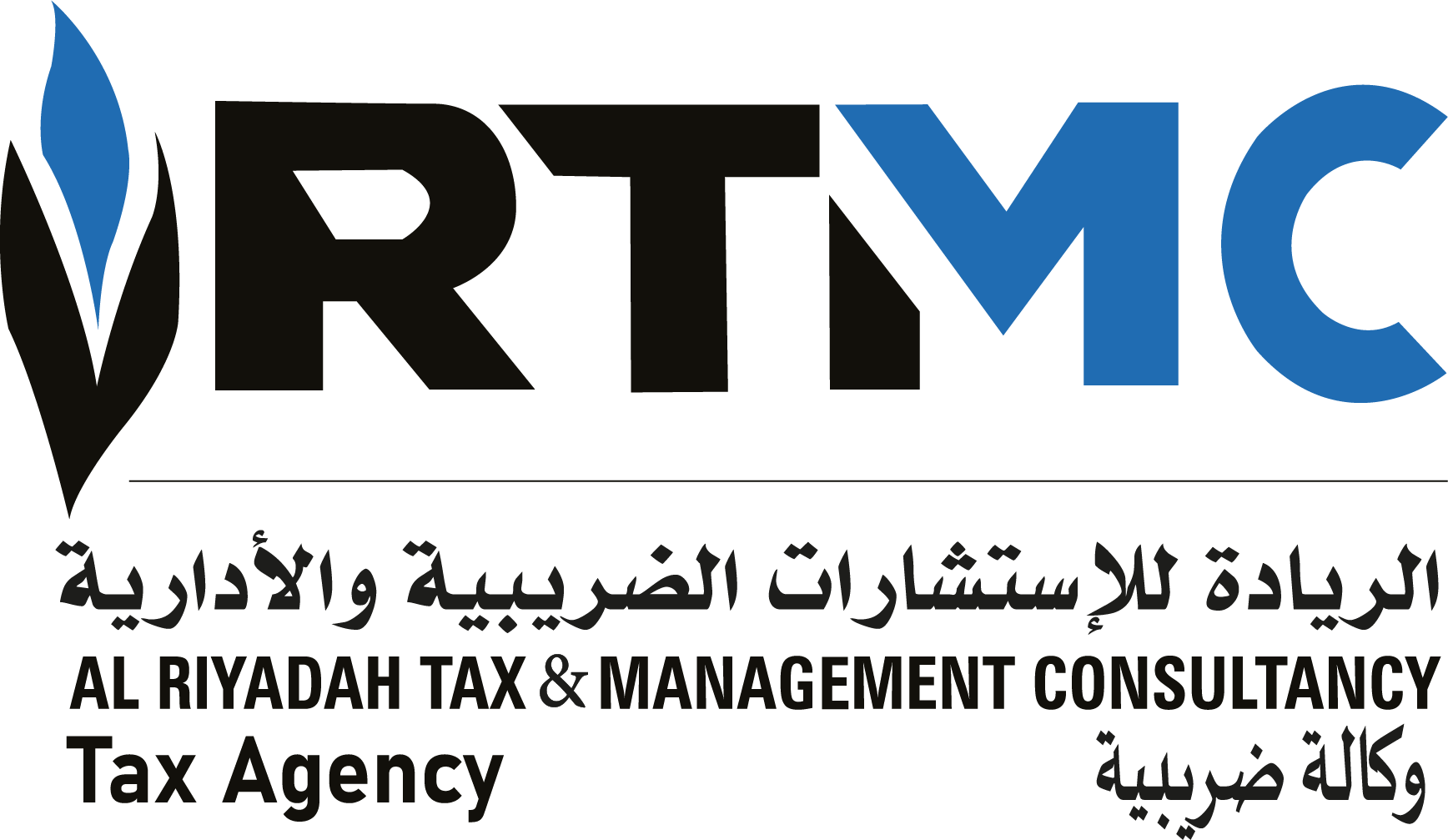

Corporate Tax Concept
Corporate tax is one of the key financial tools used by governments to generate revenue by imposing taxes on the profits made by business entities. The importance of corporate tax lies in its vital role in the state budget, where it serves as a primary source of government revenue used to fund public projects and provide essential services to citizens.
Corporate tax is determined based on the net profits earned by the company, with the rates imposed varying according to local legislation in each country. The process of calculating corporate tax involves determining the net profit, which includes all revenues generated by the company after deducting the costs and expenses related to its operations. It is crucial for companies to be aware of the factors that affect the corporate tax rate, such as applicable laws, tax amendments, and the type of business activity they conduct.
Tax agencies, represented by certified tax agents, work to collect the necessary information and levy taxes in an orderly and efficient manner. These agencies play a crucial role in guiding and supporting companies to understand their tax obligations and achieve full compliance. They also contribute to raising awareness and knowledge about corporate tax and its impact on companies and the overall national economy.
Corporate tax is a fundamental component of the tax system of any country, reflecting the economic situation and contributing to sustainable development. Understanding and managing corporate tax shows how companies can not only maximize their profits but also support overall economic growth.
Types of Corporate Tax
Corporate tax is one of the most influential factors in business performance and sustainability. These taxes are divided into two main types: direct taxes and indirect taxes. Each type plays an important role in any country’s tax system. Direct taxes, such as income tax, are those imposed directly on company profits. For instance, many countries like the United States and Canada adopt tax systems that consider the corporate tax rate on profits earned.
On the other hand, indirect taxes include those levied on the consumption of goods and services, such as value-added tax (VAT). These taxes are common in most countries worldwide, as they contribute to enhancing government revenues without imposing a significant financial burden on the profits of companies. Therefore, indirect taxes, like corporate sales tax, are an effective means of balancing tax collection with business support.
Corporate tax also includes taxes imposed on specific types of business activities, such as environmental taxes or taxes on profits from investments. In countries like Sweden and Germany, these taxes are applied to discourage activities that may negatively impact the environment. Thus, it becomes essential for companies to consult a certified tax agent to understand the various types of taxes that may apply to their business.
Being familiar with these different types of corporate tax is essential for effective financial planning and avoiding surprises that may arise during tax compliance. Here, tax agencies play a crucial role in providing advice and the necessary assistance to ensure compliance with those systems.
How to Calculate Corporate Tax
Calculating corporate tax is a vital process that helps determine the amount owed by companies. The calculation starts with determining the net profit, which is the fundamental criterion on which the amount of tax owed is based. Net profit is calculated by subtracting operating revenues and other expenses from total revenues. This determination is done in accordance with applicable rules and regulations, which often requires cooperation with a certified tax agent to ensure accuracy.
After determining the net profit, the applicable tax rates are applied according to the procedures in force in the country. These rates vary from country to country and may also differ depending on the types of companies. For example, small companies may enjoy reduced tax rates compared to large corporations. Therefore, it is essential to understand local corporate tax laws. Here, tax agencies can provide the necessary guidance to ensure tax compliance.
To make it clearer, an example can be presented: Suppose a company earned revenues of $1,000,000 with expenses of $700,000. To determine the net profit, the calculation is as follows: $1,000,000 – $700,000 = $300,000. After determining the net profit, suppose the applicable corporate tax rate is 20%. Thus, the tax owed would be $300,000 * 0.20 = $60,000. This example illustrates the sequential steps for calculating corporate tax, making it easier to understand. It also highlights the importance of dealing with a certified tax agent to obtain accurate and reliable advice.
Impacts of Corporate Tax on the Economy
Corporate tax is one of the main tools governments use to collect revenues and direct the local and international economy. This tax plays an important role in shaping fiscal and economic policies. The impacts of corporate tax on the economy can be both positive and negative, which necessitates a careful analysis of this phenomenon.
Among the positive impacts of corporate tax is that it serves as an important source of government revenue, which is used to finance public projects and services such as education, health, and infrastructure. It also contributes to enhancing innovation and growth by imposing a fair tax on profits generated by these activities. Additionally, corporate tax contributes to the creation of new job opportunities, as companies committed to paying taxes tend to expand their operations and hire more individuals.
However, it is also necessary to point out the potential negative impacts that may result from imposing a high tax rate. Corporate tax is often controversial, as it may lead to reduced investments, particularly by large companies that may seek more tax-friendly environments. Such policies can also lead to higher prices due to the tax costs passed on to consumers, affecting overall market demand.
In light of the above, it is important for a certified tax agent to take responsibility for providing proper advice and guidance to companies on how to manage their tax obligations in line with growth and financial performance strategies. Through effective coordination with a tax agency, institutions can enhance their competitiveness and achieve maximum economic benefits.
The Role of the Certified Tax Agent
A certified tax agent is a vital component of the tax management system; a tax agency plays a fundamental role in helping companies understand and manage their tax obligations, such as corporate tax. The agent provides advice related to applicable tax laws and regulations and acts as a liaison between companies and tax authorities. With extensive expertise and knowledge, the agent guides clients in managing preferences and mitigating tax-related risks.
One of the main aspects of the role of the certified tax agent is ensuring that all tax returns submitted by companies are accurate and complete. This requires an in-depth knowledge of all the company’s financial and accounting details, as well as a clear understanding of tax standards. After conducting the necessary analyses, the agent prepares the appropriate tax forms and submits them on time, helping companies avoid fines and penalties related to late or incorrect submissions.
Entering the field of tax agency work requires individuals to meet a set of qualifications. They must have a strong academic background in accounting or economics, and some systems require obtaining a professional certification in the field of taxation. Furthermore, providing ongoing support to update knowledge and skills in light of constant changes in tax laws is crucial, which poses a major challenge for this professional group.
Based on the above, it can be said that a certified tax agent plays a pivotal role in helping companies comply with tax regulations, contributing to enhancing tax compliance and raising awareness of how to effectively manage corporate tax.
Benefits of Tax Agent Services
Companies that use the services of a certified tax agent enjoy numerous benefits that contribute to their growth and financial stability. One of the key benefits is effective tax planning. A tax agent analyzes the company’s financial situation and provides strategies that help legally reduce tax obligations, allowing companies to retain more funds for investing in new projects or expanding their business.
Additionally, a tax agency provides specialized legal advice on complex tax laws, helping companies understand their obligations properly and comply with local and international regulations. This reduces the risks associated with tax violations and potential financial penalties, which could negatively affect business operations.
The legal advice provided by a certified tax agent is not only beneficial in tax matters but also includes legal protection strategies that shield the company from potential future risks. A tax agent acts as a trusted advisor who ensures that all aspects of the company’s tax obligations are handled sustainably and transparently.
Furthermore, these services help simplify accounting and administrative processes, allowing business owners to focus on core activities while reducing the time and effort spent on tax matters. In conclusion, hiring a certified tax agent can improve operational efficiency and open new avenues for growth and financial sustainability.
The Future of Corporate Tax Globally
Corporate tax is undergoing rapid changes on the global stage, with many countries adopting new policies in response to economic and political shifts. Among these changes, the importance of a certified tax agent stands out as a key factor in ensuring compliance with these new systems. Governments are seeking to amend tax laws to make them fairer and more efficient, requiring private companies to shift to flexible tax strategies.
Many countries are moving towards implementing a unified global corporate tax to combat tax evasion by large corporations and prevent unfair competition. Wealthy nations are considering enhancing international solidarity by taking joint steps to enforce minimum tax limits, which could significantly affect companies’ ability to plan taxes. These transformations are a pressing call for companies to reassess their tax strategies, taking into account new laws that may affect their financial outcomes.
Moreover, environmental and social trends are affecting tax laws, with countries encouraging companies to adopt environmentally friendly strategies through tax incentives. Here lies the role of a certified tax agent, who helps guide companies towards making appropriate strategic decisions to benefit from these incentives. Reviewing new tax laws also gives companies an opportunity to closely examine their relationships with various government entities and adapt to changing requirements within global trends.
In conclusion, the future of corporate tax worldwide requires continuous monitoring and a deep understanding of legal and economic changes. Companies must adapt to these changes and use an efficient tax agency to help them navigate a complex and evolving tax landscape.
Challenges Companies Face with Corporate Taxes
Corporate tax is one of the most important financial issues faced by companies of all sizes. However, numerous challenges arise when dealing with these taxes. One of the major challenges is the administrative complexity associated with submitting the necessary documents and complying with national and international tax laws. Often, companies need to deal with vast amounts of data and information that require accuracy and time for analysis.
Tax laws and regulations are constantly changing, which adds to the complexity of managing corporate tax. Companies need to keep up with these changes to ensure they do not overlook any amendments that could affect their tax status. Non-compliance with the laws can lead to fines and penalties that affect profitability and financial sustainability.
Additionally, companies face challenges when interacting with different tax agencies. There are gaps in understanding local and global tax laws and systems, which may lead to misjudging corporate obligations. Hence, the importance of having a certified tax agent who can guide companies in this area. A certified tax agent ensures compliance with corporate tax obligations and helps mitigate potential disruptions caused by changes in laws or procedures. They can also provide the necessary advice on how to improve tax strategies and avoid potential problems.
To overcome these challenges, companies are advised to invest in building a comprehensive tax management system, as well as rely on experts in the field of taxation. Collaborating with a professional tax agency helps obtain the necessary advice, enabling companies to focus on growth and expansion in different markets.
How to Choose a Reliable Tax Agent
When searching for a certified tax agent, individuals and companies must consider a set of criteria to ensure they select the best tax agency to meet their needs. Careful selection is essential to ensure the provision of accurate and reliable tax services. One of the basic criteria that should be considered is the qualifications and experience of the certified agent. You must ensure that the agent holds the required certifications and is registered with recognized professional bodies.
Additionally, it is recommended to check the agent’s reputation by reviewing previous client ratings. This can be done by reading online reviews and testimonials or through personal recommendations from trusted businesses. The agent’s ability to communicate clearly and understand your needs is also a critical element; you should look for someone who can provide advice clearly and in a manner that suits your corporate tax requirements.
Another important aspect is to ask the prospective tax agent a series of questions. You should inquire about their experience in dealing with institutions or companies similar to yours and the tax challenges they typically face. Asking about the agent’s strategies to minimize legitimate taxes can reveal the extent of their skill and efficiency in this field. Also, clarify the fee schedule and commissions, and the service delivery model, as transparency in dealings is extremely important.
At the end of this process, you should feel comfortable and confident when dealing with the selected tax agent, as this ensures the best service for your tax needs.
